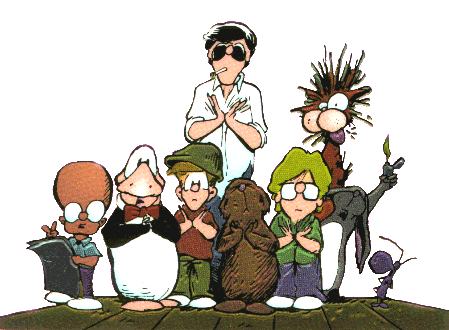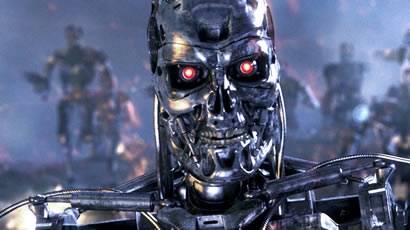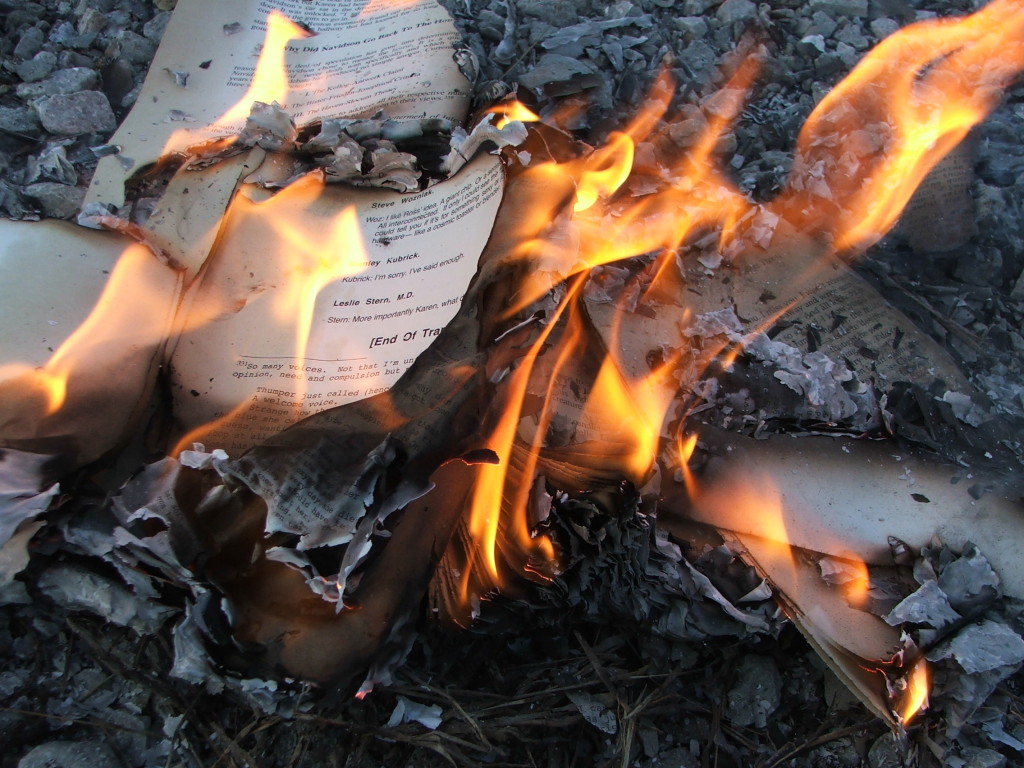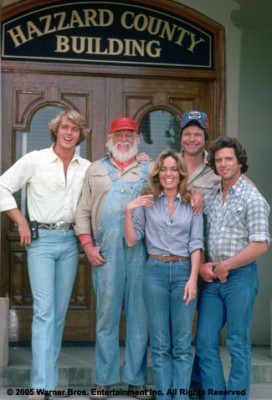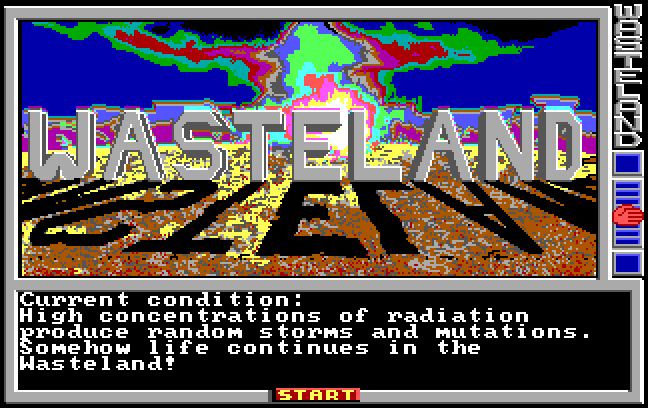
With the recent release of The Summer the World Ended, I’ve had a lot of people ask me how I got interested in the post-apocalyptic genre. I have to admit that my fondness for the setting predates even my love of cyberpunk (which is due in large part to the Sprawl trilogy by William Gibson).
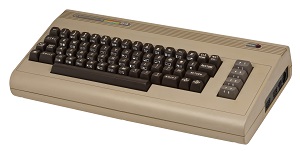
Commodore 64
In 1988, I was 15 and the proud owner of a Commodore 64 computer. I’d been a fan of the Bard’s Tale games (fantasy RPG) for some time. When I spotted an advertisement in a computer magazine for Brian Fargo’s Wasteland, I thought ‘holy crap! Bard’s Tale with guns!’ I’d been a fan of the original Mad Max film for a while at that point, so I possessed a nascent interest in the idea of a post-apocalyptic scenario. It didn’t help that during the Eighties, nuclear paranoia was high. Some friends and I had come up with a paper and pencil role-playing game set in a post-nuclear world. Of course, being twelve or so when we made it, the best title we came up with for it was ‘Road Warrior.’
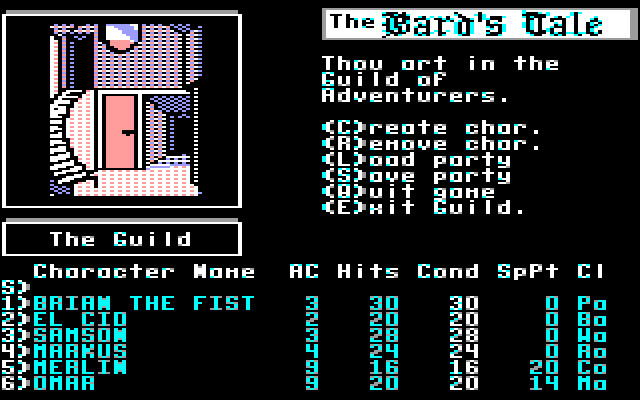
(Bard’s Tale 1 – This was once considered kick-ass graphics.)
Anyway, I’d managed to scrape up enough money to buy Wasteland, but had no easy way to go get it. Opportunity came when a friend next door, Joey, randomly announced he was on the way to the mall with his parents. I asked if he could stop in Electronics Boutique and nab me a copy of Wasteland. He did, and there went my summer. Back then, computer games came on 5 & ¼ inch floppy disks, with many minutes lost at “loading” screens, and swapping disks. Wasteland was the first game I played with a ‘persistent world,’ where things you did stayed ‘done’―as opposed to each ‘map’ resetting whenever you went in. Because of this, the game manual asked you to create a copy of one of the disks before playing to preserve the game in its original state if you wanted to play it again.
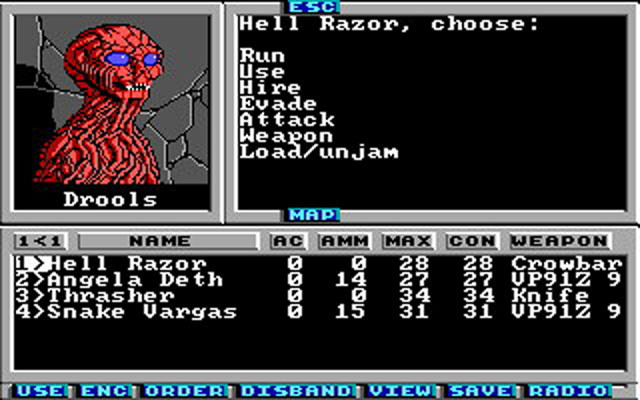
(Ahh, poor Rad Ghoul. You’ve inspired much. Pity you died so fast–and often.)
Wasteland blended a style of RPG combat and party mechanics similar to that used in the Bard’s Tale games, with a top-down world view similar to Ultima-4. Moving around and skill use occurred on a map view, while interacting with NPCs [hiring or attacking them] happened in the party interface.
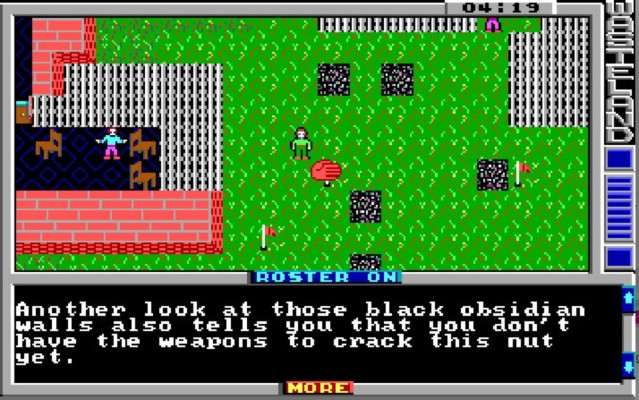
(Top down view – It was not a good idea to go into the Citadel too early.)
I played that game so much the floppies had visible grooves in the substrate. For hours on hours I’d search every space within every abandoned building, hoping to stumble on some rare treasure. Of course, aside from one Proton Ax, all I found were rats and snakes. (Poison sucketh.) I still remember random bits and pieces from the game – the nightmare ghoul in Finster’s head, the password (M****IM) to open the nose of the ICBM under the Blood Temple, running in and out while lobbing LAW rockets at Brother Goliath in the Guardian Citadel… and of course the Scorpitron bot in Las Vegas.
I still have no damn idea what the “combat shooting” skill did.
Wasteland, given the limited disk space at the time, made use of a ‘paragraph book,’ which contained narrative text the game would refer to from time to time. You’d enter an area and the computer would prompt you with something like: read paragraph 174. This would lead to a narrative describing the scene almost like a game master running a tabletop game. While I doubt people would have the patience for this sort of thing today, the mixed media worked to bring the player into the world in much the same way a reader plunges into a novel. Worth mention as well, the devious minds responsible for Wasteland littered the paragraph book with red herrings to mess with anyone trying to cheat by reading ahead. (Some of those were quite funny.)
The experiences I had from that game created a deep-seated fondness for the post-apocalyptic genre, leading to touches of it in many of my novels. The Badlands, part of the world in which Division Zero, Virtual Immortality, and the Awakened series take place is one example. Prophet of the Badlands contains two references to Wasteland for the sharp observer. At one point, Althea (the main character), is being taken to a crime lord in what’s left of Las Vegas named “The Freddy.” This is an homage to a character from Wasteland (Fat Freddy.) The other reference is a wheeled android that Althea finds trapped in a stream. In Wasteland, the sewers under Las Vegas are filled with similar cyborgs (though their goals and reason for existing are not the same.)
A post-apocalyptic Earth setting, be it a nuclear event, zombies, virus, alien attack, or natural disaster, is a verdant field from which to grow stories. Themes of survival, human nature (light and dark), the evils of runaway technology, and the innocence (or bloodlust) of a reinvented society, abound. Almost anything goes in terms of the ‘feel,’ from heavy use of crude melee weapons and a ‘fantasy’ tone, to a gritty ‘counting bullets and bandaids’ world. Heck, throw in psionics or magic and another dimension opens up. (Apocalypses don’t have to be nuclear.)
Writers can explore the way characters deal with the lack of the protection afforded by civilization, or the absence of modern medicine. Icons of our consumerist society abound. Familiar and safe images become eerie. Consider the all-too-familiar sight of a Starbucks, but replace the people and coffee with broken windows and vegetation growing up through the floor. A squeaky vent, rats the size of housecats, and something moving in the back room. How haunting is the sight of a crumbling grade school fifty years after any child has set foot in it. (Chernobyl pictures anyone?)
In post-apocalyptic Earth, the ordinary becomes the fantastic. Items we don’t think twice about (a working iPhone or bottle of medicine for example) would become a priceless treasure. Regardless of how your fictional world got sent back to the proverbial stone age, the story concept of characters emerging from the rubble offers endless possibilities. Wasteland started my love of the genre, has inspired much of my writing, and I will forever be fond of it.
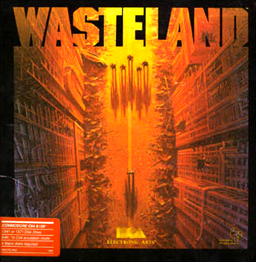
(P.S. – after many years, inXile has released Wasteland 2, the official sequel. If you love post-apoc, and you love video games, it is a must-buy.)
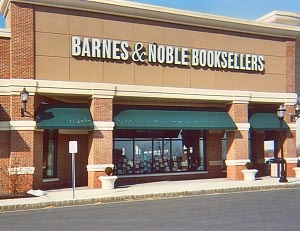
 Normally, after I complete a first draft, it’s hard not to dive right back in and do another pass. I feel a bit like a kid sitting next to a jar full of dark chocolate brownies… unable to resist. At the moment, there’s enough going on to keep me distracted and give me the chance to let it sit. Taking a break to clear the mind lets a writer look at something with fresh eyes. Much better to let a manuscript sit for a while before going back through it, but it’s so damn hard to resist.
Normally, after I complete a first draft, it’s hard not to dive right back in and do another pass. I feel a bit like a kid sitting next to a jar full of dark chocolate brownies… unable to resist. At the moment, there’s enough going on to keep me distracted and give me the chance to let it sit. Taking a break to clear the mind lets a writer look at something with fresh eyes. Much better to let a manuscript sit for a while before going back through it, but it’s so damn hard to resist.